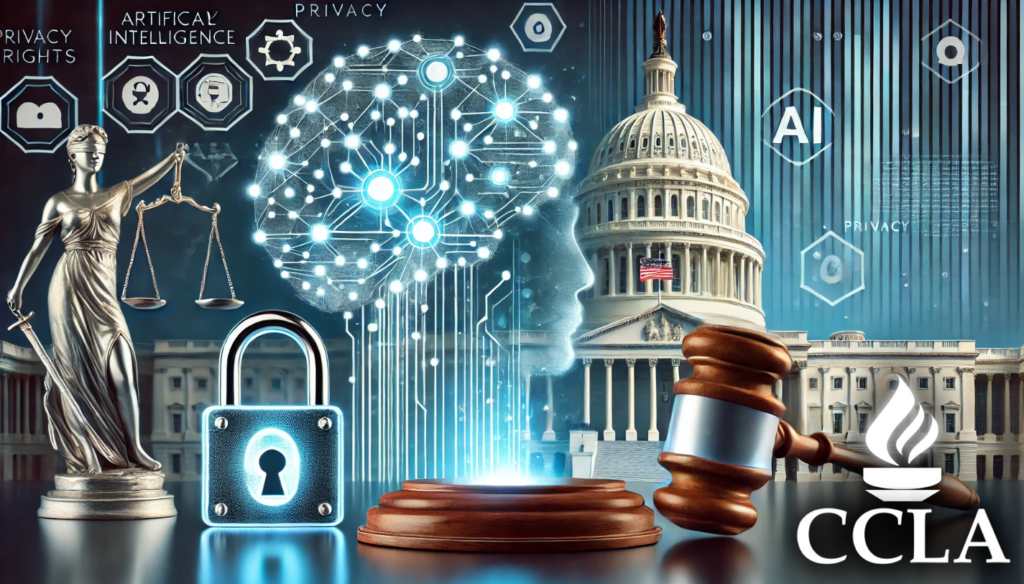As artificial intelligence (AI) continues to reshape our society, recent political developments highlight the ongoing efforts to balance technological innovation with privacy rights and civil liberties. Over the past month, significant changes in federal and state AI policies have emerged, underscoring the evolving regulatory landscape. Here is a non-partisan roundup of the most recent updates across the nation:
Trump Administration’s AI Policy Shift
On January 21, 2025, President Donald Trump revoked a 2023 executive order issued by former President Joe Biden that aimed to mitigate AI-related risks to consumers, workers, and national security. The Biden-era policy had required AI developers to share safety test results with the government before releasing their products to the public. The revocation reflects the Trump administration’s strategy to reduce perceived regulatory barriers to AI innovation, prioritizing economic growth over precautionary oversight.
FTC Referral of Snapchat AI Chatbot Complaint
The Federal Trade Commission (FTC) has referred a complaint against Snap Inc. to the Department of Justice, alleging harm caused by its AI chatbot, “My AI.” The complaint highlights concerns over the chatbot’s potential impact on young users, reinforcing the broader debate about AI’s influence on privacy and mental well-being. This referral signals increased scrutiny of AI applications targeting minors and may set new legal precedents for AI consumer protections.
State-Level AI Regulations
Mississippi has taken proactive steps to regulate AI within state government operations. Governor Tate Reeves recently signed an executive order directing the Mississippi Department of Information Technology Services to develop policies ensuring the ethical, secure, and transparent use of AI across state agencies. This initiative could serve as a model for other states seeking to modernize government services while safeguarding privacy.
AI’s Role in the 2024 Election
The 2024 U.S. election saw AI technology playing a pivotal role, with concerns over AI-generated misinformation prompting action in several states. Sixteen states enacted legislation requiring disclaimers on synthetic media used in political campaigns to combat misleading content. Despite these measures, AI-driven disinformation remained a significant challenge, illustrating the need for comprehensive federal regulation.
Proposed AI Civil Rights Act
Senator Edward J. Markey has introduced the Artificial Intelligence Civil Rights Act, aimed at preventing AI-driven discrimination and ensuring greater accountability in algorithmic decision-making. The proposed legislation seeks to establish transparency requirements for companies deploying AI in ways that affect individuals’ rights and civil liberties, reflecting growing bipartisan concern about AI bias and fairness.
Legal Challenges and Future Outlook
The legal landscape for AI continues to evolve, with experts predicting an increase in litigation related to AI tools and applications. Key areas of concern include copyright disputes over AI training data, potential bias in hiring algorithms, and antitrust issues related to AI-driven pricing models. Companies and policymakers alike must navigate these challenges carefully to balance innovation with ethical considerations.
As AI technology continues to advance, so too must our legal and regulatory frameworks. The recent developments at both the federal and state levels demonstrate a growing awareness of the potential risks associated with AI while striving to foster innovation. The California Civil Liberties Advocacy remains committed to monitoring these changes and advocating for policies that protect individual rights in the face of rapid technological evolution.

